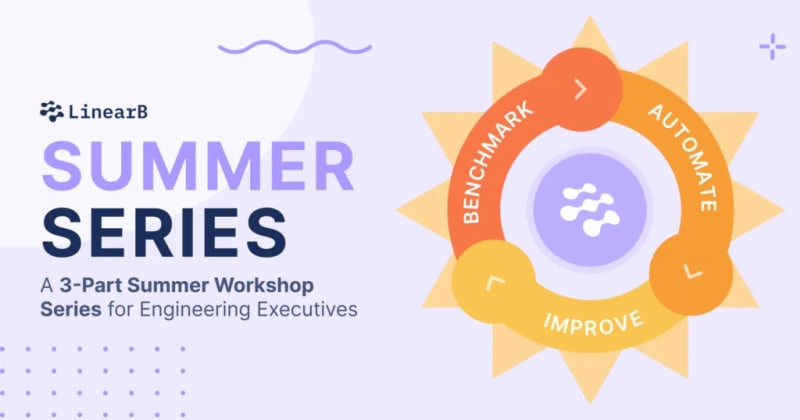Do our personal learning preferences actually affect how well we learn? And what makes learning new skills - like a programming language - so hard in the first place?
On this week’s episode of Dev Interrupted, we’re joined by Hywel Carver, founder & CEO at Skiller Whale. An expert in the principles and practices behind learning and knowledge retention, Hywel walks us through the best learning techniques for engineers.
He also discusses how engineering leaders can upskill their teams without hiring additional staff, why modern approaches to learning often fall short (think YouTube), and why there is no evidence to support the idea that personal learning styles, such as visual or kinesthetic, impact learning outcomes.
Episode Highlights:
- (2:25) Why is it difficult to learn something new?
- (4:30) Learning types: passive, constructive, interactive
- (12:38) Learning hard skills vs 'power' skills
- (15:00) Do children and adults learn the same?
- (20:15) Problem with how new skills are taught
- (25:24) Upskilling your eng team
- (31:00) Tracking learning success
- (35:42) Best ways for engineers to learn new skills
Episode Excerpt:
Conor Bronsdon: Hey everyone. Welcome to Dev Interrupted. This is your co-host, Conor Bronsdon. And today we're joined by Hywel Carver founder and CEO at Skiller Whale. Hywel, welcome to the show.
Hywel Carver: Hi, Conor. I'm very happy to be here. Thanks for having me.
Conor Bronsdon: And you're joining us from London today, is that right?
Hywel Carver: I am. I am in North London where it is gray and dull.
Conor Bronsdon: I'm over in the Seattle area same deal here. So it's a pleasure to have you to talk to and dive into some interesting info to, to pride. In both of our days, you've identified a problem that I think everyone in the audience can relate to, that knowledge isn't as sticky as what we'd like it to be.
I'm sure we've all felt this, and there's different statistics on the subject, but it's often noted that a person only remembers about 10% of a book within two weeks of reading. and that can make it difficult to learn and retain new skills, especially when the subject is coding. So that's why we're gonna chat today.
About what it takes to actually learn a new skill, put it into practice, and how if you're an engineering leader, you can build more skills in your existing team without having to hire more people. So let's jump right in. How, why is it so difficult to learn something new and what's going on in the brain when that happens?
Hywel Carver: So the reason it's difficult to learn something new is because the things have to be right in order to learn. We are generally not very good at optimizing the sort of scenario around us for the best learning. So in your entry, you talked about both reading a book and development of skills, which I would say are actually quite separate.
Things like reading a book is a good way of getting knowledge and information, which is necessary to get a skill, but it is not sufficient if you want the skill. Oh, then a base. Exactly. It doesn't get you able to do. It gets you able to maybe understand it best to do the thing, to actually have the skill and to be able to put it into practice.
You need to be doing it, you need to have a go. You need to fail and get feedback on that skill. And if you think about, if you think about any kind of. Critical application where we care about skills a lot. That's pretty much exactly what happens if you're training to be a, an airline pilot.
They don't just have you read the manual and then stick you in a plane. There's thousands of hours in flight simulators, which are constantly giving you feedback and letting you see the results of your actions and putting you in different scenarios and giving you the opportunity to respond to those and improve your skills before they let you actually fly the plane.
I think that is generally emblematic of how we should approach all skill learning. We need the knowledge, but we also need to put it into practice and do the thing, and before we can expect to have the skill. And so this is why to come back to your question, why it's difficult to learn something new is because often we conflate those things together and we think I've read the book, I should be able to do the thing.
And there's actually this gap in between, which is that trial and error and feedback process.
Read the rest of this episode transcription here
While you’re here, check out this video from our YouTube channel, and be sure to like and subscribe when you do!
A 3-part Summer Workshop Series for Engineering Executives
Engineering executives, register now for LinearB's 3-part workshop series designed to improve your team's business outcomes. Learn the three essential steps used by elite software engineering organizations to decrease cycle time by 47% on average and deliver better results: Benchmark, Automate, and Improve.
Don't miss this opportunity to take your team to the next level - save your seat today.




Top comments (0)